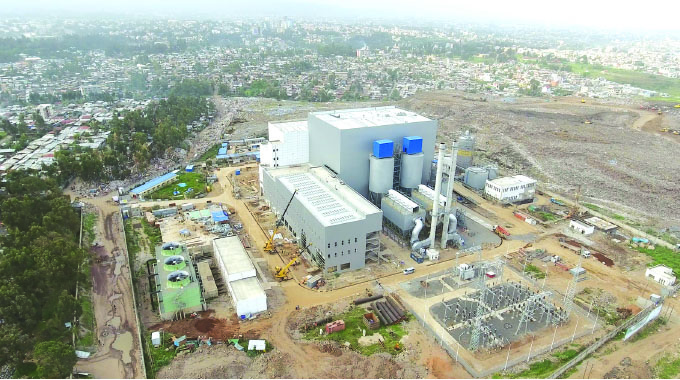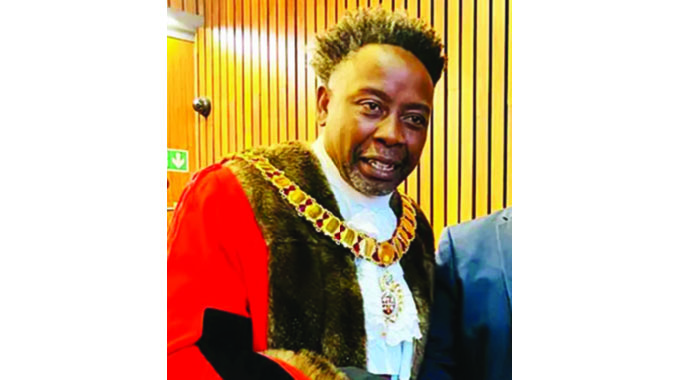Diaspora has created business opportunities in Zim

Dr Masimba Mavaza
In a bid to facilitate investing back home, a vehicle of investment, the Zimbabwe Investment Business Community (ZIBC), comprising those in the diaspora, is raising awareness for Zimbabweans to consider investing back home.
Zimbabweans have realised that there are several economic programmes taking place in the economy back home.
The term ‘millionaire’ is taking on a new meaning for Zimbabweans abroad. Zimbabwe’s new and emerging generation of millionaires are not just excited about money.
They are in the Diaspora and excited about going back to Zimbabwe. They’re also passionate about impact; they want to create value that improves people’s lives.
Zimbabwe is the only country they call theirs in the whole world. And they are interested in what has come to be known as impact entrepreneurship.
It’s a new way of making money and doing good, at the same time. It’s a model that is proving that profit and ambition do not always have to come at the expense of the other.
Zimbabwe is overwhelmed by serious problems, from unemployment to a high demand for energy. These are the problems that the Diaspora are eager to solve.
This new generation of millionaires are focusing on the country’s problems because solving them will unlock massive streams of wealth, jobs and prosperity for the nation.
Most of these problems are tough, widespread and decades old. But while they are scary and frustrating to most people, entrepreneurs see them for the opportunities they really are.
Zimbabweans have ignored the retail sector. It is sad that foreigners have taken over retail business.
So it’s quite common for Zimbabweans in the diaspora to yearn for native dishes when they are out there.
Some people have jumped onto this by creating food catering outlets in the diaspora that serve local delicacies e.g. sadza, traditional dishes and so on.
So, a lot of cafeterias are being opened by the Zimbabweans abroad.
But now with the experience from abroad, Zimbabwe has seen the sprouting of businesses that are bridging the gap between Diasporans and their loved ones back home.
In principle, they provide platforms for Diasporans to order and pay for foodstuffs or other services that get sourced and delivered locally to their loved ones.
So, the online shopping is the sector that diaspora has activated while abroad. This business enables diasporans to pay for bills, mobile recharges, sending money and groceries, paying hospital bills for their local loved ones.
While this provides service to service users it provides employment to those in Zimbabwe and makes millions for the tax man.
A diaspora association intends to constantly engage with the Diaspora community to “construct and maintain” a healthy economic relationship back home.
It is not a secret that Zimbabweans abroad have acquired many skills and knowledge and are raring to use them in uplifting the lives of many Zimbabweans.
Speaking about investment in Zimbabwe, Professor Earnest Kadembo of Manchester England said: “Diaspora should unite in a think tank which is an apolitical group and purely for those wishing to pursue their business goals.
Zimbabweans abroad have realised that Zimbabwe is endowed with resources, minerals, land, human resources and just natural beauty of nature and scenery.
On its on, Zimbabwe is a Jewel on show displayed by God for all to marvel.
Mr Tawanda Machakaire from Leicester commented: “Zimbabweans abroad must plan to go home and access these resources which God gave us. We Zimbabweans must develop a mindset of having a greater voice that unlocks doors and creates opportunities for us all.”
The Diaspora is also interested in farming. The majority of Zimbabweans in the diaspora are working class and earn varying amounts of income be it from being employed or being employers.
Thus, it’s proper to assume that most of them possess buying power in some shape or form.
The thrust of any business is to carve out a niche and bolster its customer base. Essentially, this means that fellow Zimbabweans in the diaspora are also a market that can be tapped into.
Across the world, agriculture has become big business.
According to the United Nations, Africa’s agribusiness is expected to be worth US$1 trillion by 2030.
The continent has a huge domestic market, owns 60 percent of the world’s unused arable land and has abundant labour resources, as well as favourable climate in most parts.
And Zimbabwe can again become the bread basket, not just of southern Africa but the continent.
A large part of indigenous farmers are not fully mechanised and the Diaspora can come in and fill the gap.
The Diaspora have adopted a business model called ‘crowdfarming’ and it’s a trend that could totally transform the face of agribusiness in Zimbabwe and Africa.
As Zimbabwe’s GDP doubles over the next four years, the opportunities in agribusiness are very likely to produce a lot of millionaires.
Zimbabweans from all walks of life in the diaspora have a longing of being in the sun while being productive.
The nostalgic smell of the of the baked soil softened by drops of the early rains. The smell of the soaked dust drives the mind to the house of stones – Zimbabwe.
In sync with the President’s call to make money, Zimbabweans in the diaspora are free to interact, discuss business and seal deals, and discuss ideas of how best they can help the motherland return to its old glory and make money.
“Besides benefiting from remittances, countries globally have used Diaspora investments to develop their nations in areas such as infrastructure.
There have been strategic efforts to get the Zimbabwean Diaspora community across the globe to return home and help chart the country’s economic future through promotion of various socio-economic and business initiatives.
“Lately, Zimbabwe has been crafting homegrown solutions to revitalise its economic recovery and there is strong belief that this may not be achieved without the support of the Zimbabwe Diaspora community.
“Value addition and beneficiation in the mining sector, new industries in special economic zones, agro-processing and manufacturing are some of the business opportunities available in Zimbabwe for investors in the Diaspora.
“Locals living outside the country contribute immensely to poverty reduction, development, reconstruction, and economic growth of countries of origin,” commented the founder of the Diaspora group in the UK.
The Diaspora has also decided to go into recycling. For decades, waste has been a huge and nagging problem in urban areas.
Currently, most of the waste generated is either burnt or ‘buried’. As a result, more than 80 percent of solid waste produced ends up in landfills or gets dumped in water bodies.
And as the population continues to rise, the waste problem will only get worse. So, what do we do with all the growing heaps of filth before we find ourselves in the middle of the worst environmental crisis the world has ever known?
While the Pomona project has proved to be an answer to the waste problems, the diaspora has come up with a project soon to be revealed.
In South Africa, the solution appears to be to convert waste into animal feed.
AgriProtein is a business that grows maggots from waste collected from markets, households and businesses.
The maggots are processed into a highly nutritious protein supplement that substitutes fish meal in animal feed.
The company has raised up to US$30 million in funding, making it one of the best-funded insect farming businesses to date.
In Ethiopia, the solution is to convert waste into electricity. The Repi Waste Recycling factory in Addis Ababa will produce 50 megawatts of electricity from waste collected from across the city.
The facility is expected to supply three million homes with electricity, and avoid the release of millions of tonnes the of CO2 into the atmosphere.
Across the continent, entrepreneurs are hard at work, trying to squeeze out value from waste and, in the process, they’re creating an industry that could provide both low and high-level jobs for thousands of people.
Another sprouting business created by diaspora is the Brokerage businesses which is now quite diversified with the operating model being to serve as a middle person.
These are businesses that facilitate the importation of goods from the diaspora. Clearing agencies are the most common who earn money by easing the logistical and clearance burden that Diasporans might face in trying to send, particularly cars, to recipients here.
In line with vision 2030, the diaspora has created another lucrative businesses in entertainment.
Zimbabweans in the diaspora still closely follow local developments in the music industry and as such, they always welcome performances from local musicians.
That’s why most music promoters arrange gigs or live shows in other countries to tap into the diaspora.
Lots of Zimbabweans pass away whilst being in the diaspora and often times need to be repatriated home for burial.
This is where funeral service providers have tapped into the diaspora with most Zimbabweans establishing firms for funeral services.









Comments